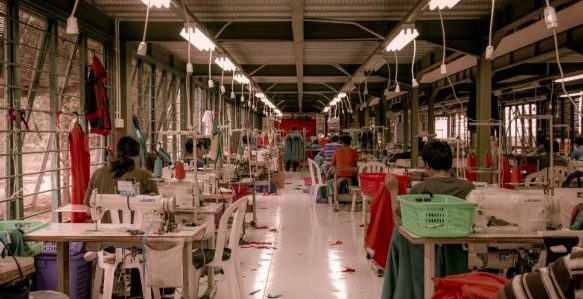
Modern slavery survivor calls for economic system built on transparency
Modern slavery remains an unsettling presence in our every day lives. Our garments, smartphones, and even solar panels often carry the grim mark of forced labor and human exploitation. This disturbing reality begs a question: if consumers truly understood the human suffering behind their purchases, would they make different choices?
That’s a question chief on Nasreen Sheikh’s mind.
“I ate, slept and worked my little fingers raw”
Nasreen is a survivor. She grew up in sweatshops in Kathmandu, Nepal, working for 12 – 15 hours a day, earning less than $2 for each – if she managed to complete hundreds of garments. Most of the time, she was paid nothing at all. She ate, slept, and worked in a workstation she describes as no bigger than a prison cell, sewing until her fingers bled.
Today, she can’t see clothing in chain stores in the U.S. without seeing suffering.
